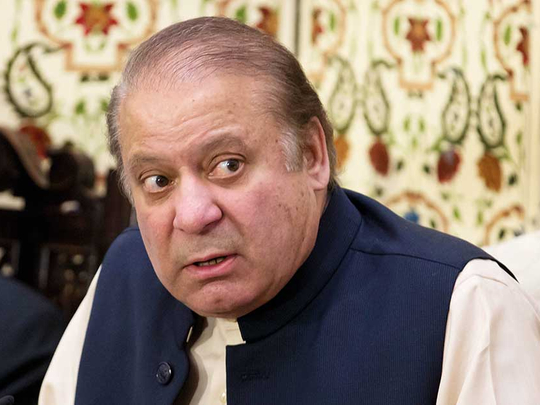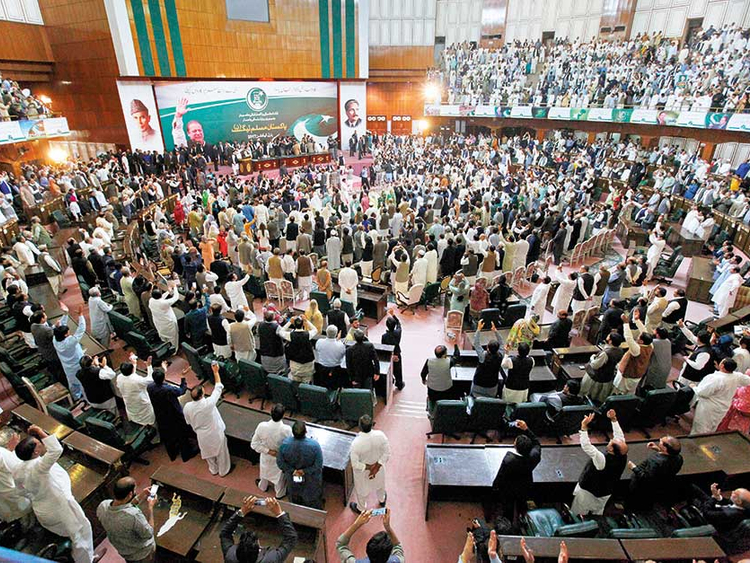
Islamabad: The House of Sharif, one of Pakistan’s two great political dynasties, is looking more and more like a house of cards. Yet against all odds, deposed prime minister Nawaz Sharif seems determined to keep it standing.
For much of the past three decades, the billionaire industrial family has controlled Pakistan’s wealthiest and most influential region, Punjab province. Sharif, 67, has been elected prime minister three times and remains one of the country’s most popular politicians.
But time and again, Sharif and his clan have run afoul of the military, which is suspicious of his desire to reach out to India and his attempts to establish civilian supremacy. In 1999 he was ousted by the army and sent into exile.
‘I will continue to fight’
Elected again in 2013, he was removed from power by the Supreme Court two months ago after a court battle with opponents who accused his family of hiding their wealth overseas. Yet here he flew in from mini-exile in London on Tuesday to face new corruption charges that could lead to his imprisonment and defiantly vowing to lead his party to victory in next year’s national election.
“I will continue to fight this case,” a grim-looking Sharif said at a news conference after briefly appearing at the National Accountability Court here. Declaring that Pakistan’s “constitution and democracy” are at stake, he said, “I believe that God and the people of Pakistan are with me, and I still hope that justice is alive somewhere.”
The “big decision,” he added, “will come in 2018, with the general elections in my favour.”
The stunning about-face came as Sharif’s family and its once-formidable political machine, the Pakistan Muslim League-N, appeared to be falling apart amid a cascade of political and legal challenges after the July 28 high-court ruling that permanently barred Sharif from parliamentary office for having been “dishonest” with the public. Sharif won praise from some quarters for bowing to the law and returning home from London, essentially issuing a challenge to the military and its allies in the civilian establishment. But even some supporters worried that he would go too far.
At the same time, rumours have flooded Pakistani news and political circles that Sharif has been trying to make a deal with the military establishment to avoid prison. After he was ousted in 1999, the military allowed him to go into exile in the Gulf. This time, though, any agreement also would have to include the judiciary, which has been pursuing the Sharifs relentlessly for months.
Sharif seems remarkably upbeat, given the circumstances. He often mentions the cheering crowds that greeted him after he stepped down and travelled home to Punjab. More recently he has been buoyed by growing disarray in the main opposition party, led by cricket star Imran Khan, and by a parliamentary proposal that would allow him to head the Muslim League again.
Yet the tense political drama of the past several months has caused increasingly deep rifts within Sharif’s family and party as their legal and political woes accumulate. The disputes first erupted over who would be named to replace Sharif in Parliament and as the next candidate for prime minister.
His younger brother Shahbaz, 66, always portrayed as a party workhorse and wise consigliere, reportedly was humiliated when Nawaz passed him over twice, first choosing Abbasi to replace him as premier and then having his wife, Kulsoom, who is hospitalised with cancer in London, run in absentia for his legislative seat. Shahbaz, the chief minister of Punjab, fled his post and fumed silently in London as the campaign unfolded.
— Washington Post













